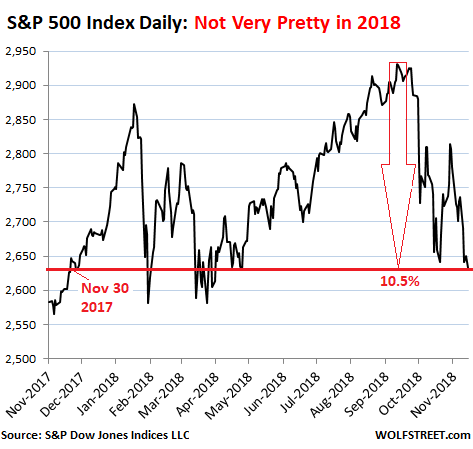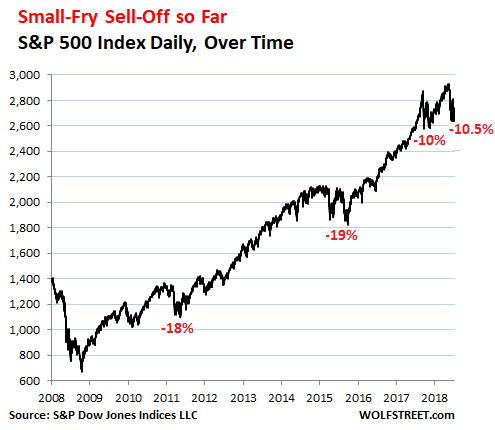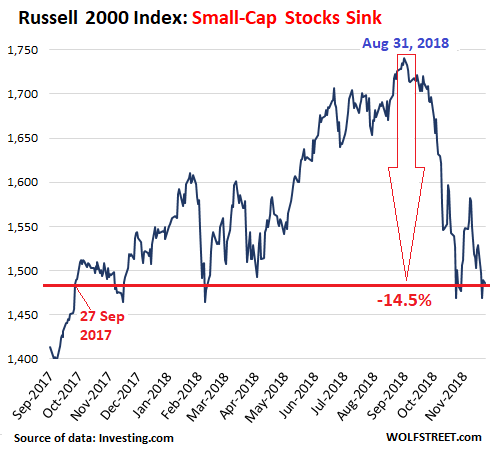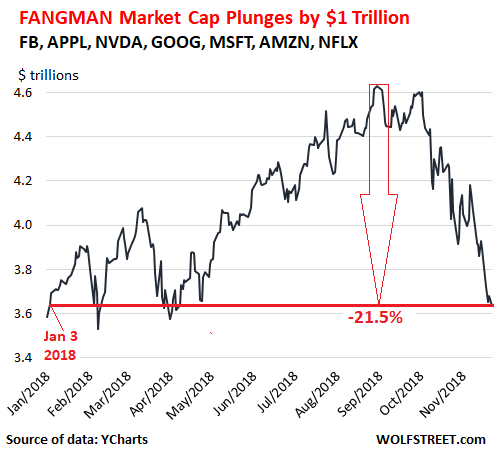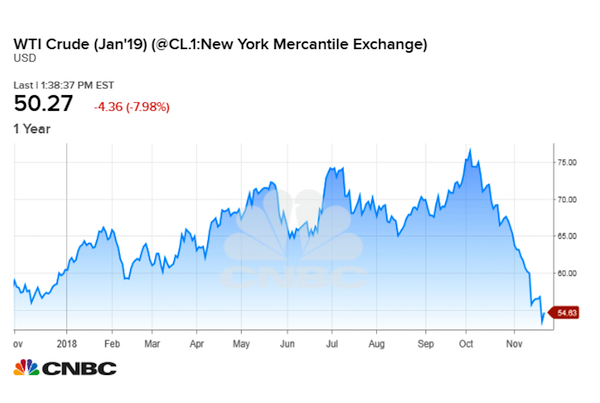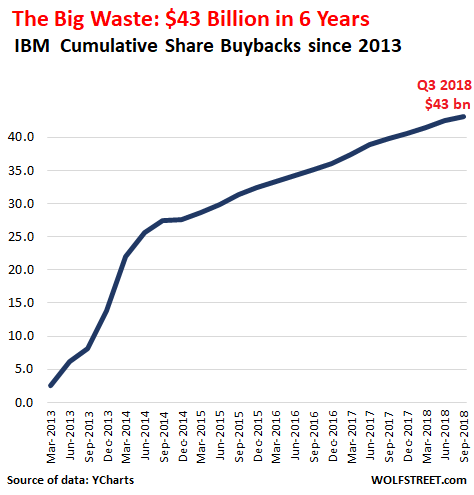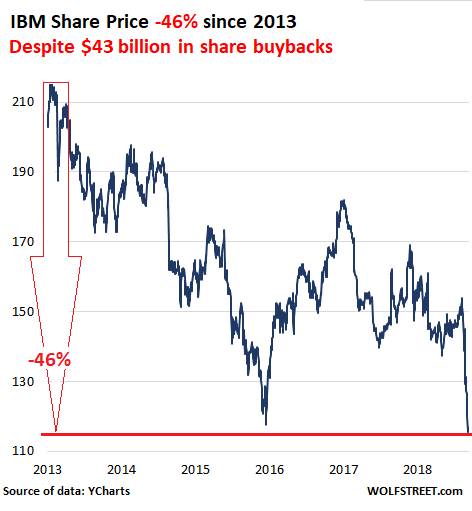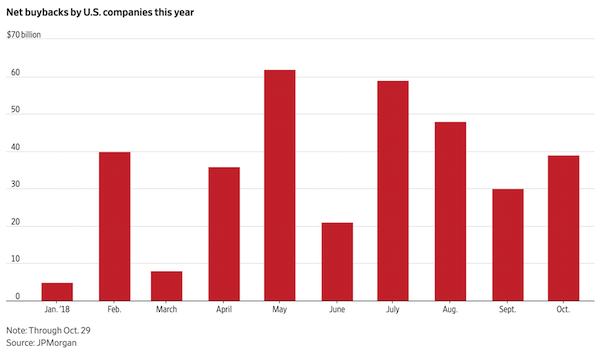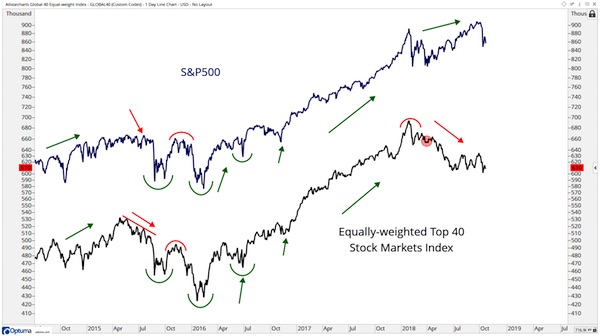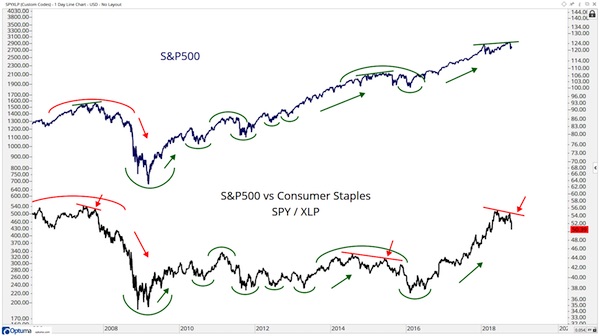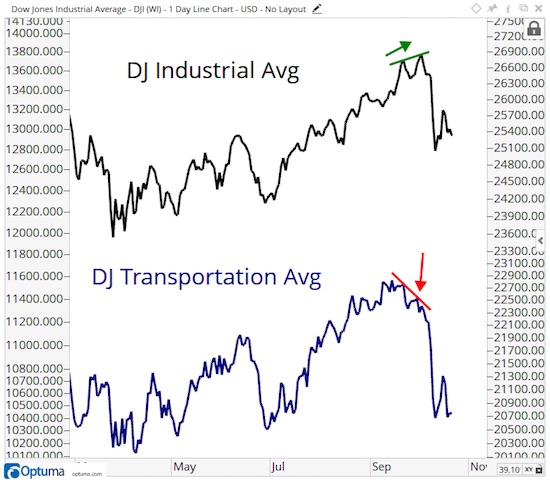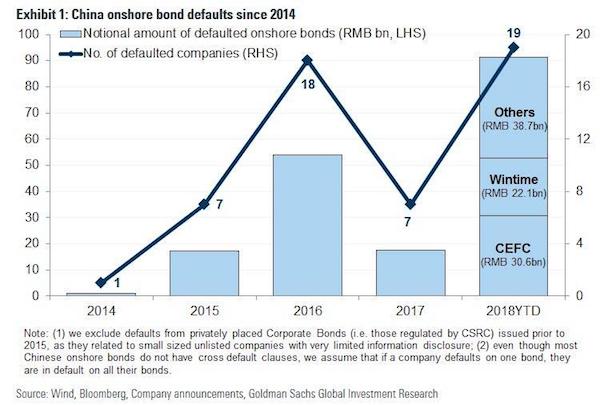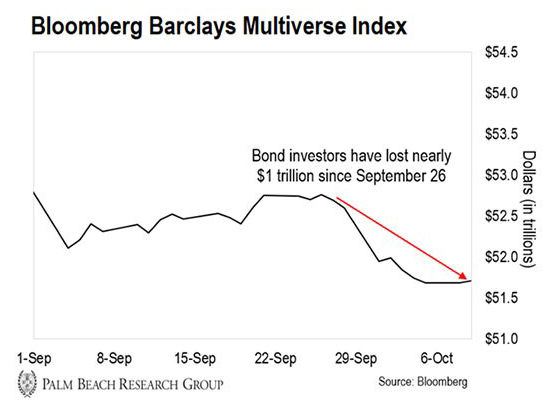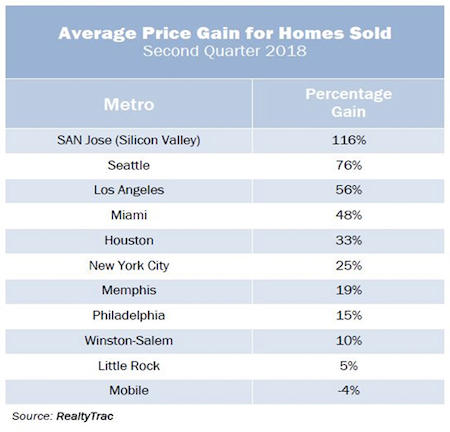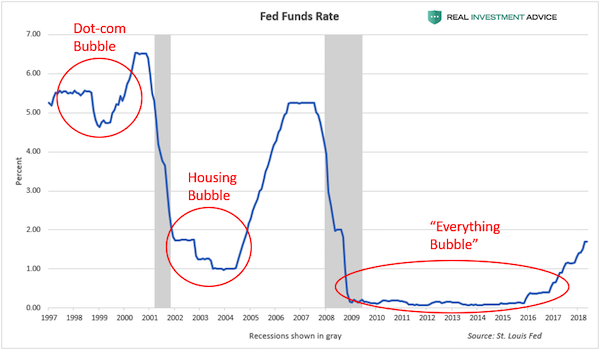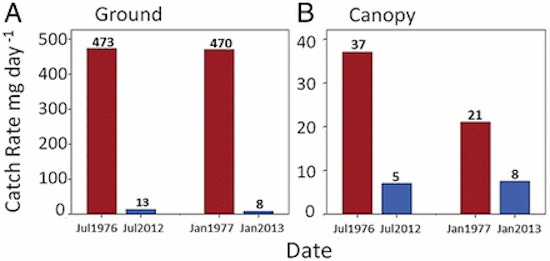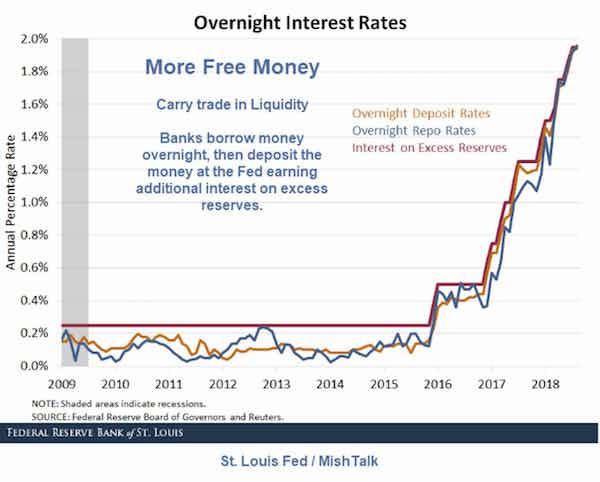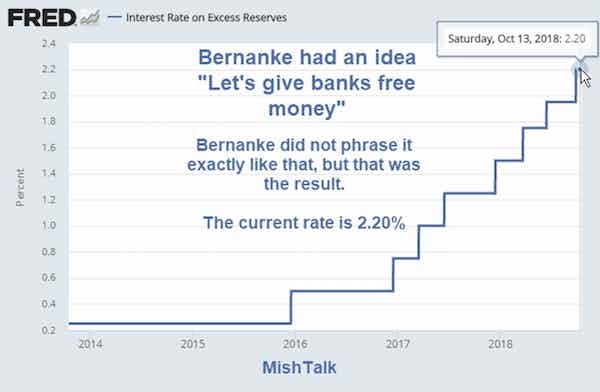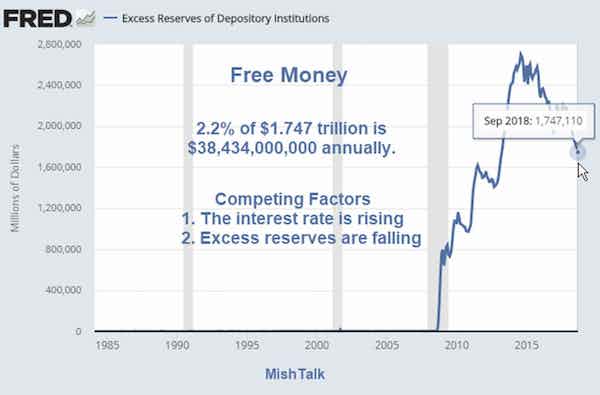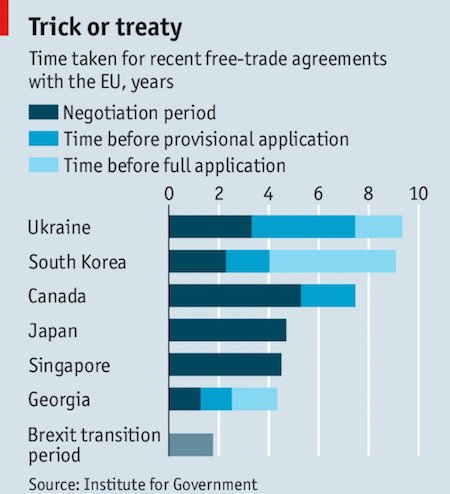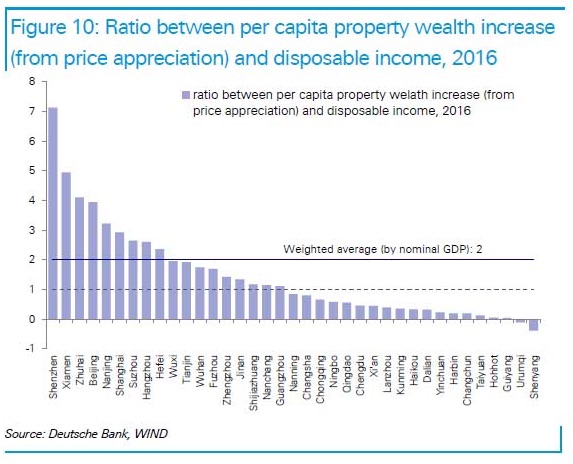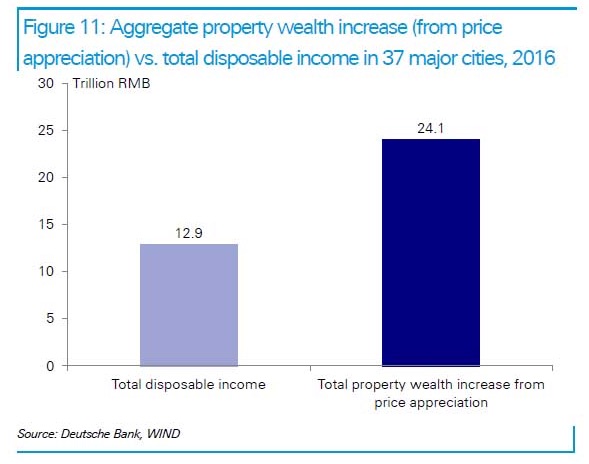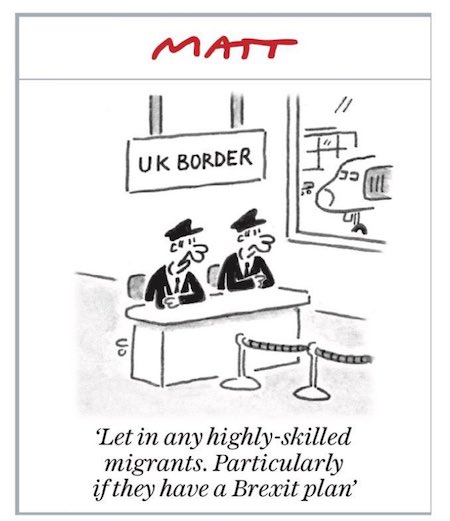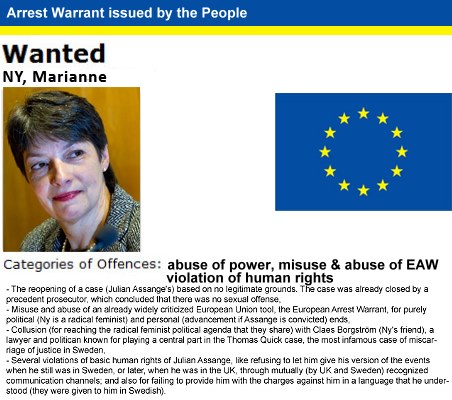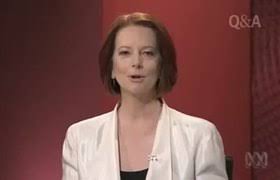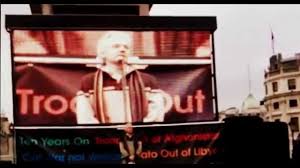
Sirkka-Liisa Konttinen Kendal Street, Byker, Newcastle 1969

Powell, Draghi and Kuroda to the rescue!
• Yield Curve: What Bond Market Most Feared Is Starting To Happen (CNBC)
The bond market sees storm clouds on the horizon, despite the trade ceasefire between President Donald Trump and China. But not all strategists agree with the dire warnings, though they do note some unusual behavior. On Monday, the difference between the 10-year Treasury yield, at 2.97 percent, and the 2-year yield, at 2.82 percent, dramatically narrowed by 5 basis points, the biggest one day move since late March. Traders have been watching the difference between the yields on various Treasurys for months, along what is called the yield curve between the longer and shorter-term bonds.
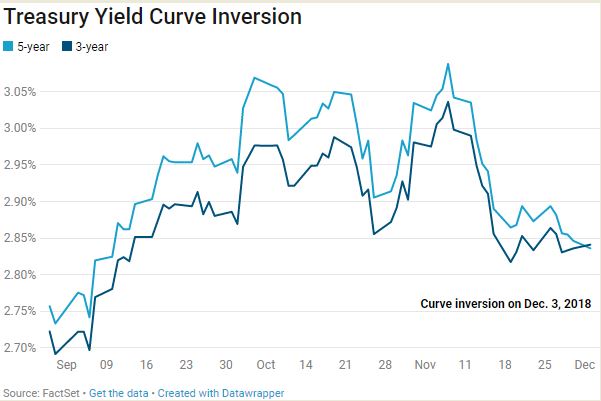
And in this time, the longer duration 10-year yield has gotten closer and closer to the yield on the 2-year. If the two should flip, and the 2 -year yield actually rises above the benchmark 10-year, that inversion would be a signal of a recession. The two yields are currently just under 15 basis points apart, the narrowest since around the time they last inverted in June 2007. What’s worrisome for some is that on Monday, the difference between the yields on the 3-year and 5-year, and those of the 2-year and 5-year, inverted.
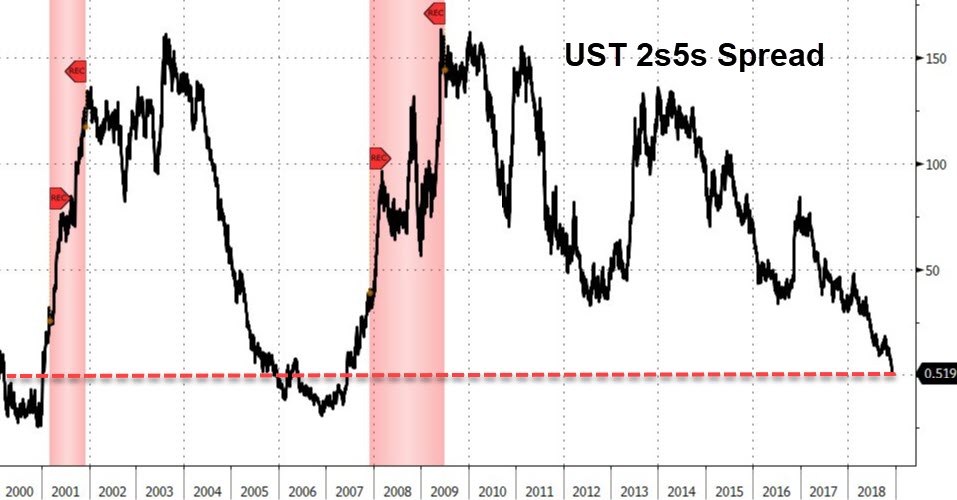

Final warning.
• UK Government Accused Of Holding Parliament In Contempt On Legal Advice (G.)
A senior minister is at risk of being suspended from the House of Commons after Labour and the Democratic Unionist party were allowed to submit an emergency motion accusing the government of holding parliament in contempt for failing to publish the full Brexit legal advice. John Bercow, the Speaker, allowed Labour, the DUP and four other opposition parties to lay down a motion that will be voted on Tuesday, immediately before before the start of the five-day debate on the Brexit deal. The motion, submitted late on Monday, calls on MPs to find “ministers in contempt for their failure to comply” and is signed by the shadow Brexit secretary, Sir Keir Starmer; the DUP’s Westminster leader, Nigel Dodds; and the Scottish National party, Liberal Democrats, Plaid Cymru and the Green party.
No penalty is spelled out in the motion, which is intended to act as a final warning, but Labour said that if it was passed on Tuesday and not still complied with then the party would seek further sanctions. The party indicated it would then seek to hold a senior minister – likely to be either the Cabinet Office minister, David Lidington, or the attorney general, Geoffrey Cox – in contempt and seek their suspension from the Commons. Bercow ruled in the evening that he would accept a contempt motion after the six parties wrote to him jointly complaining that the summary Brexit legal advice released on Monday did not comply with a Commons resolution agreed on 13 November.

Holding Parliament in contempt is one thing, holding your people in contempt is another one altogether.
• Four Million British Workers Live In Poverty (G.)
More than 500,000 British workers have been swept into working poverty over the past five years, according to a report that shows the number of people with a job but living below the breadline has risen faster than employment. In the latest sign that the link between entering work and making ends meet has become increasingly frayed in 21st-century Britain, the Joseph Rowntree Foundation (JRF) said that the number of workers in poverty hit 4 million last year, meaning about one in eight in the economy are now classified as working poor. Nearly all of the increase comes as growing numbers of working parents find it harder to earn enough money to pay for food, clothing and accommodation due to weak wage growth, an erosion of welfare support and tax credits and the rising cost of living.
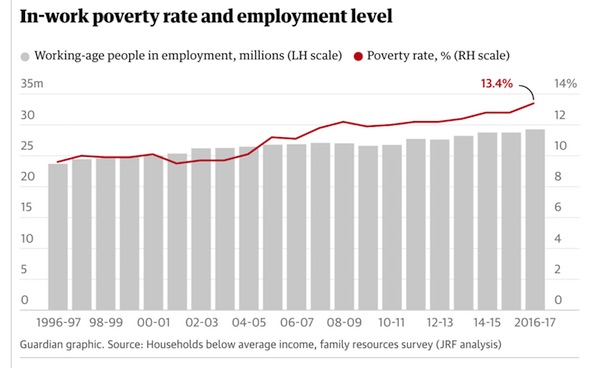
Half a million more children have become trapped in poverty over the past five years as a direct consequence, reaching 4.1 million last year, the charity’s report added. It means that in a typical classroom of 30 children, nine would come from a household in poverty. Campbell Robb, chief executive of the JRF, said: “We are seeing a rising tide of child poverty as more parents are unable to make ends meet, despite working. This is unacceptable.” In the findings of JRF’s report, UK Poverty 2018, the number of children who slipped into poverty from a working family rose more steeply than at any time for 20 years.

There is no time for a second round of talks even if the people demand it.
• 1.5 Million Demands For Second Referendum Handed To Downing Street (Ind.)
Campaigners for a new referendum have handed in petitions carrying almost 1.5 million names to Downing Street, demanding the British public be given a final say on the outcome of Brexit. The group representing The Independent’s Final Say campaign and the People’s Vote initiative handed over the petitions as Theresa May prepared for what is set to be a bruising five-day Commons debate on her Brexit deal. Pressure for a new referendum is increasing ahead of the vote that will come at the end of that debate next week, with the prime minister looking at a heavy personal defeat if MPs reject the deal she agreed with the EU. Anger over her deal increased on Monday, when the government published a legal paper confirming that under Ms May’s plan, the UK will be indefinitely locked in to the controversial ‘backstop’ arrangement.
Campaigners carrying EU flags and placards chanted calls for a new referendum as they met outside the Churchill War Rooms in Westminster, before marching to No10 to deliver the petitions on Monday morning. Conservative ex-cabinet minister Justine Greening said: “Britain has choices ahead of it. The key issue that we’re saying today, and that’s why we’re delivering a petition signed by a million people in this country, is that those choices are ones that should be made by the British people. “Parliament is gridlocked … This is no way to decide the most fundamental question facing Britain for the next 10, 20, 30, 40, 50 years.”

Again dependent on Europe. Reuters headline just now: “Britain can revoke Brexit unilaterally, EU court adviser says”. Court decision expected to take a few more weeks.
• Europe’s Top Court To Rule On Whether The UK Can Cancel Brexit (CNBC)
The legal advisor for the European Union’s top court will publish his opinion Tuesday on whether the U.K. can cancel Brexit without asking anybody else for permission. A group of Scottish lawmakers have sought a legal ruling on if and how the U.K.’s request under Article 50 to leave the European Union could be unilaterally revoked before the Brexit deadline of March 29, 2019. Article 50 allows a country to trigger the process that takes them out of Europe’s political and economic union. U.K. Prime Minister Theresa May invoked the exit clause in March 2017. Backed by a crowdfunding appeal, the case has been put together by a cross-party group of Scottish politicians, along with the high-profile barrister Jolyon Maugham QC.
The final ruling on whether Article 50 could be canceled without input from the EU’s other 27 countries will be granted by the Court of Justice of the European Union (CJEU). [..] The EU is worried that allowing a country to trigger Article 50 and then reverse the decision with no additional input could become a tool for those unsatisfied with the policies of Brussels. For the U.K. government and pro-Brexit politicians, there are likely concerns it could pave the way for a second referendum, giving the public an option of remaining in the EU.

Macron is cornered. Many in France say he’s done.
• ‘Death Threats’ Halt France Protest Summit (BBC)
Protesters from France’s “gilet jaunes” (yellow vests) movement have pulled out of a meeting with PM Edouard Philippe scheduled for Tuesday. Some members of the group said they had received death threats from hardline protesters warning them not to enter into negotiations with the government. The PM is due to make a major statement possibly as early as Tuesday. The yellow vests oppose a controversial fuel tax but now reflect more widespread anger at the government. A spokeswoman for the movement, Jacline Mouraud, said: “The meeting today at Matignon [the prime minister’s office] has been cancelled in the face of threats.
“There are calls to prevent us from going. If I were to get on a train, I would run the risk of being recognised.” Three people have died since the unrest began and the resulting violence and vandalism – notably when statues were smashed at the Arc de Triomphe last Saturday – have been widely condemned. [..] The French president held an urgent security meeting on Monday. Ministers said that while no options had been ruled out, imposing a state of emergency had not been discussed during the talks. Mr Macron has also cancelled a planned trip to Serbia to concentrate on the crisis. Culture Minister Franck Riester told reporters that Mr Philippe would announce “a strong conciliatory gesture in the coming days”, without giving details. AFP news agency reports that the prime minister will announce a moratorium on fuel tax.

Color me unsurprised.
• Mueller Withheld “Details That Would Exonerate Trump” (ZH)
It appears that special counsel Robert Mueller withheld key information in its plea deal with Trump’s former attorney, Michael Cohen, which would exonerate Trump and undermine the entire purpose of the special counsel, according to Paul Sperry of RealClearInvestigations. Cohen pleaded guilty last week to lying to the Senate intelligence committee in 2017 about the Trump Organization’s plans to build a Trump Tower in Moscow – telling them under oath that negotiations he was conducting ended five months sooner than they actually did. Mueller, however, in his nine-page charging document filed with the court seen by Capitol Hill sources, failed to include the fact that Cohen had no direct contacts at the Kremlin – which undercuts any notion that the Trump campaign had a “backchannel” to Putin.
“On page 7 of the statement of criminal information filed against Cohen, which is separate from but related to the plea agreement, Mueller mentions that Cohen tried to email Russian President Vladimir Putin’s office on Jan. 14, 2016, and again on Jan. 16, 2016. But Mueller, who personally signed the document, omitted the fact that Cohen did not have any direct points of contact at the Kremlin, and had resorted to sending the emails to a general press mailbox. Sources who have seen these additional emails point out that this omitted information undercuts the idea of a “back channel” and thus the special counsel’s collusion case.” -RCI
Page 2 of the same charging document offers further evidence that there was no connection between the Trump campaign and the Kremlin; an August 2017 letter from Cohn to the Senate intelligence committee states that Trump “was never in contact with anyone about this [Moscow Project] proposal other than me,” an assertion which Mueller does not contest as false – which means that “prosecutors have tested its veracity through corroborating sources” and found it to be truthful, according to Sperry’s sources. Also unchallenged by Mueller is Cohen’s statement that he “ultimately determined that the proposal was not feasible and never agreed to make a trip to Russia.”
“Though Cohen may have lied to Congress about the dates,” one Hill investigator said, “it’s clear from personal messages he sent in 2015 and 2016 that the Trump Organization did not have formal lines of communication set up with Putin’s office or the Kremlin during the campaign. There was no secret ‘back channel.’” “So as far as collusion goes,” the source added, “the project is actually more exculpatory than incriminating for Trump and his campaign.” -RCI”

Court document (PDF). For one thing, the Mueller team demands that Corsi keep any plea agreement secret and under seal, which would ‘criminally and civilly violate’ Corsi’s obligations as a securities dealer.
• Jerome Corsi Legal Ethics Complaint Against Robert Mueller (Klayman)
On or about May 17, 2017, Robert Swan Mueller III (“Special Counsel Mueller”) was appointed as a Special Counsel for a limited purpose investigation as defined by the order of Deputy Attorney General Rod Rosenstein. A copy of Robert Mueller’s appointment as Special Counsel is attached as Exhibit A. Dr. Corsi has been investigated by Special Prosecutor Mueller and the attorneys whom he hired to serve as prosecutors under him [..] This Complaint concerns the politically-motivated criminal investigation of Dr. Corsi, an investigative journalist, whose activities are protected by the First Amendment to the U.S. Constitution.
Dr. Corsi has been threatened with immediate indictment by Mueller’s prosecutorial staff unless he testifies falsely against Roger Stone and/or President Donald Trump and his presidential campaign, among other false testimony. Dr. Corsi is placed in an impossible, no-win scenario and is in immediate legal jeopardy. If he were to lie under oath to testify as the Special Prosecutor and his prosecutorial staff demand, some later prosecutor could accuse Dr. Corsi of perjury and/or violating any plea deal. The Special Prosecutor and his prosecutorial staff have already accused Dr. Corsi of lying when Dr. Corsi is in fact telling the truth and told the truth. Either way, Dr. Corsi remains at risk of a perjury prosecution without the relief demanded. Dr. Corsi is being investigated for the “crime” of doing his job as a foreign policy and national security journalist.

WikiLeaks: “Ecuador’s president Lenin Moreno tried to sell Assange to U.S. in exchange for cash loans as early as May 2017..”
• Manafort Tried to Broker Deal With Ecuador to Hand Assange Over to US (NYT)
In mid-May 2017, Paul Manafort, facing intensifying pressure to settle debts and pay mounting legal bills, flew to Ecuador to offer his services to a potentially lucrative new client — the country’s incoming president, Lenín Moreno. Mr. Manafort made the trip mainly to see if he could broker a deal under which China would invest in Ecuador’s power system, possibly yielding a fat commission for Mr. Manafort. But the talks turned to a diplomatic sticking point between the United States and Ecuador: the fate of the WikiLeaks founder Julian Assange. In at least two meetings with Mr. Manafort, Mr. Moreno and his aides discussed their desire to rid themselves of Mr. Assange, who has been holed up in the Ecuadorean Embassy in London since 2012, in exchange for concessions like debt relief from the United States, according to three people familiar with the talks, the details of which have not been previously reported.
They said Mr. Manafort suggested he could help negotiate a deal for the handover of Mr. Assange to the United States, which has long investigated Mr. Assange for the disclosure of secret documents and which later filed charges against him that have not yet been made public. Within a couple of days of Mr. Manafort’s final meeting in Quito, Robert S. Mueller III was appointed as the special counsel to investigate Russian interference in the 2016 election and related matters, and it quickly became clear that Mr. Manafort was a primary target. His talks with Ecuador ended without any deals. Mr. Moreno’s team increasingly looked to resolve their Assange problem by turning to Russia.
In the months after Mr. Moreno took office, the Ecuadorean government granted citizenship to Mr. Assange and secretly pursued a plan to provide him a diplomatic post in Russia as a way to free him from confinement in the embassy in London. (That plan was ultimately dropped in the face of opposition from British authorities, who have said they will arrest Mr. Assange if he leaves the embassy.)

10 years after Detroit bailouts, Ford too is in trouble. It’s industry wide.
• Ford’s Restructuring Could Slash More Jobs Than GM’s – Morgan Stanley (MW)
Ford Motor Co.’s restructuring would be “more extensive” than GM’s and could involve laying off tens of thousands of employees around the world, analysts at Morgan Stanley said in a note Monday. The analysts used Ford’s planned expenses as part of their calculations and compared them to General Motors’s expenses in the latter’s planned restructuring announced last week. Regardless, Ford is likely “next in line” in announcing layoffs as GM’s move “reflects an industrywide phenomenon” with potentially larger cuts, the analysts said. Ford last October announced an $11 billion restructuring plan, with a cash cost around $7 billion, but has not provided any details yet.
GM is spending as much as $ 2 billion of cash (up to $3.8 billion of total charges) to close seven plants and lay off about 14,000 workers. “Extrapolated to Ford’s planned expenditure, this could imply 20 plants and up to (50,000) employees,” the Morgan Stanley analysts said. “Our estimate of Ford’s restructuring plan involves as many as (25,000) head count reductions globally.” “A large portion” of Ford’s restructuring actions will likely be focused on Ford Europe, they said.

Might as well move to public transit then?! The Chinese don’t have a car dependent society like the US, they can take a wider view.
• Future Of Auto Industry Lies In Car Sharing – Chinese Execs (CNBC)
Several Chinese auto and transportation industry leaders are preparing for a future in which people share cars, rather than own them individually. “(The new generation), they’re not interested in the ownership. They’re probably more interested in accessibility,” Freeman Shen, founder and CEO of Chinese electric car company WM Motor, said last week at CNBC’s East Tech West conference in the Nansha district of Guangzhou, China. Technological advances in the last several years have aided the rise of multibillion-dollar ride-hailing giants such as Uber and Didi. They, in turn, have challenged the traditional taxi driver system and cultivated a habit of on-demand car services for tens of millions of users globally despite ongoing safety concerns.
Traditional automakers, many already trying to navigate rising interest in the electric vehicle market, are paying close attention to the ride sharing trend. Notably, General Motors is testing the waters with its own rental program. In China, Feng Xing Ya, general manager of Guangzhou-based automaker GAC, also said the future of the auto industry lies in car sharing. “(It’s) a challenge for the auto industry because people may buy fewer cars,” Feng said in Mandarin, according to a CNBC translation, during a Nov. 27 conference session. Without giving much detail on a plan, Feng said he favored a strategy of entering — rather than avoiding — the car sharing economy, which he said can still generate a lot of income for a company.
However, such a rapid change in consumer tastes could give start-ups an advantage. Shen, formerly a director at Fiat Chrysler and Chinese automaker Geely, said traditional automakers are too focused on selling cars rather than improving user experiences. He said his company’s focus on software and newness to the market means he has everything to gain and little to lose from a shift to ride sharing.

It’s about much more than tariffs.
• US-China Trade Talks: Forced Tech Transfers, Intellectual Property Theft (CNBC)
Two contentious issues were notably downplayed in the deal between Donald Trump and Xi Jinping at the G-20 summit over the weekend: China’s alleged practice of forcing technology transfers and apparent theft of intellectual property from American companies. U.S. concerns over forced technology transfers in China, intellectual property violations and cyber-crime issues will likely become a central focus going forward, as trade negotiations between both countries continue, experts told CNBC on Monday. However, they added, a resolution may not be immediately forthcoming. “It is interesting to note that IP/cyber was only mentioned in paragraph four of the White House statement, reflecting Trump’s focus on trade deficits,” Steven Okun at McLarty Associates told CNBC on Monday.
“Still, this does not mean this is not core to the U.S. tariffs.” [..] One expert, however, said that downplaying those issues could reflect the reality of what to expect from ongoing negotiations — that there are no quick fixes to the complexities of forced technology transfers and intellectual property violations. “I have argued for some time that there is no quick resolution to these issues, so there is no simple win for the Trump Administration here,” Adam Posen, president of the Peterson Institute of International Economics said. “The downplaying could therefore be a welcome dose of realism from the Trump Administration about what to expect from negotiations.” Or, it could represent a desire to calm things down with China, he added. “Either way, this issue is not going to go away,” Posen told CNBC by email.

Try the brave face.
• Bitcoin Drops 8% To Kick Off December (CNBC)
Bitcoin is kicking off the last month of 2018 with another downward drop. After ending November deeply in the red, the world’s largest cryptocurrency fell as much as 8 percent on Monday to a low of $3,790.96, according to data from CoinDesk. At this time last year, bitcoin was beginning its climb to almost $20,000 and ended last December up 40 percent. It entered its hot streak just after Thanksgiving last year, surging in price largely because retail investors were buying in. But the tail end of this year has been a different story: Bitcoin is now down 73 percent since the beginning of January. Twenty-four-hour trading volumes are down 56 percent since Jan. 1, while the entire cryptocurrency market capitalization has fallen 80 percent.
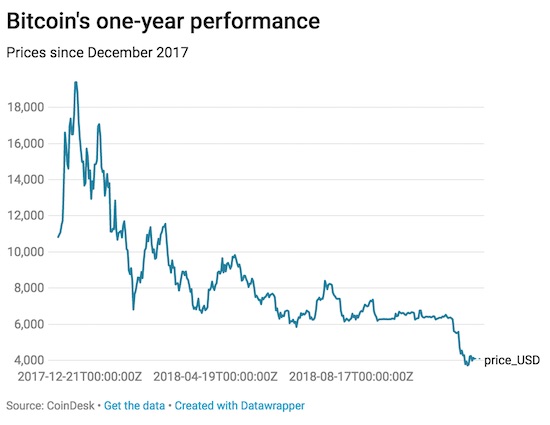

World ‘leaders’, no matter how much lip service they pay, are the very last people you should trust to bring about change. The statement by UN secretary general António Guterres says all you need to know on that. You can’t buy your way out of this one, but that’s the only trick they’ve learned. And their power depends on that. They’ll announce trillions in investment, and matters will only get worse. This is all about the production side of things, aimed at keeping consumption levels the same. But those have to come down drastically.
• David Attenborough: Collapse Of Civilisation Is On The Horizon (G.)
The collapse of civilisation and the natural world is on the horizon, Sir David Attenborough has told the UN climate change summit in Poland. The naturalist was chosen to represent the world’s people in addressing delegates of almost 200 nations who are in Katowice to negotiate how to turn pledges made in the 2015 Paris climate deal into reality. As part of the UN’s people’s seat initiative, messages were gathered from all over the world to inform Attenborough’s address on Monday. “Right now we are facing a manmade disaster of global scale, our greatest threat in thousands of years: climate change,” he said. “If we don’t take action, the collapse of our civilisations and the extinction of much of the natural world is on the horizon.”
“Do you not see what is going on around you?” asks one young man in a video message played as part of a montage to the delegates. “We are already seeing increased impacts of climate change in China,” says a young woman. Another woman, standing outside a building burned down by a wildfire, says: “This used to be my home.” Attenborough said: “The world’s people have spoken. Time is running out. They want you, the decision-makers, to act now. Leaders of the world, you must lead. The continuation of civilisations and the natural world upon which we depend is in your hands.”
[..] António Guterres, the UN secretary general: “Climate change is running faster than we are and we must catch up sooner rather than later before it is too late,” he said. “For many, people, regions and even countries this is already a matter of life or death.” Guterres said the two-week summit was the most important since Paris and that it must deliver firm funding commitments. “We have a collective responsibility to invest in averting global climate chaos,” he said. He highlighted the opportunities of the green economy: “Climate action offers a compelling path to transform our world for the better. Governments and investors need to bet on the green economy, not the grey.”




